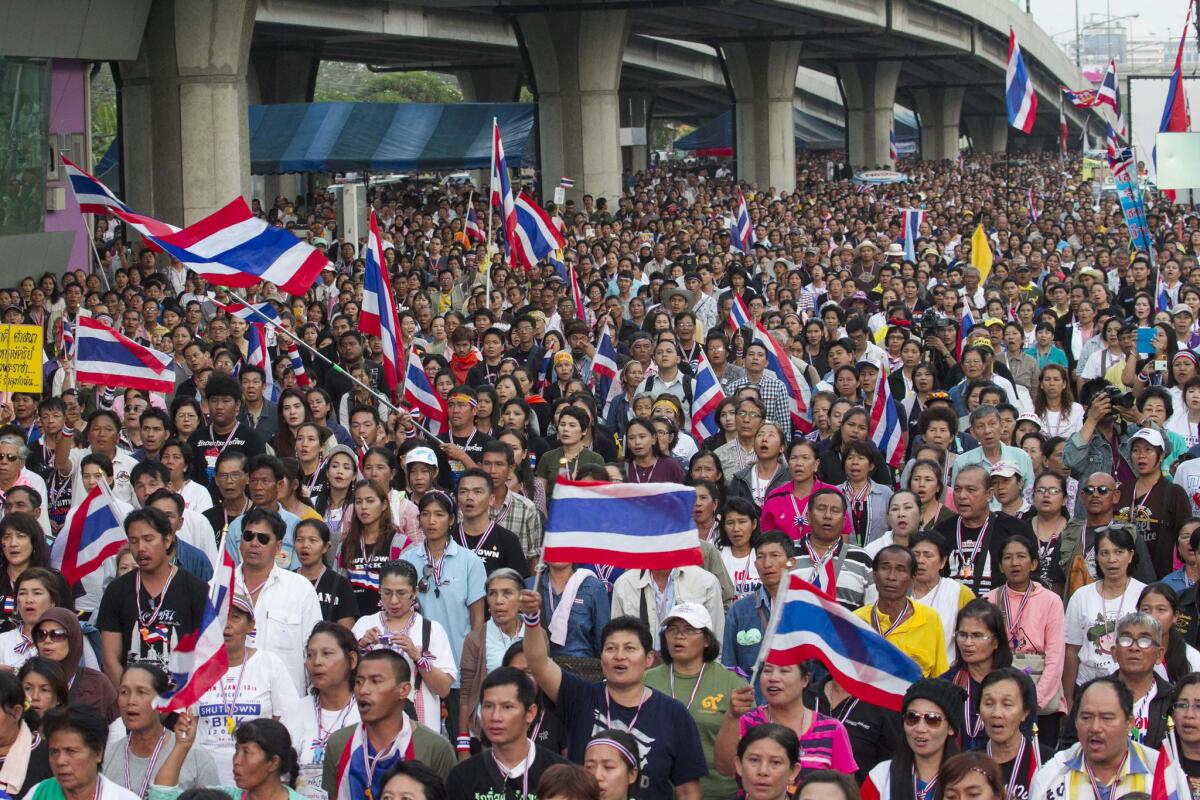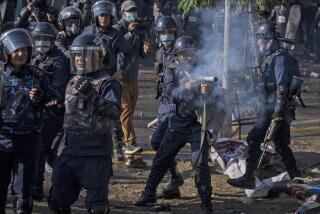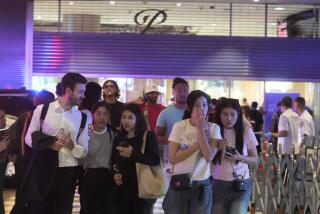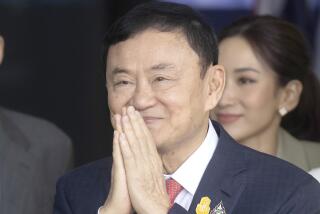Thai protests forcing choice between coup d’etat and continued chaos

A massive protest against the government of Thailand on Monday occupied seven key intersections in teeming Bangkok, paralyzing traffic in the city of 12 million and forcing schools and businesses to close, news agencies reported.
Though the demonstrators demanding the resignation of Prime Minister Yingluck Shinawatra were mostly peaceful, the vows of a radical opposition segment to shut down the stock exchange and air traffic control in the tourism-dependent country stirred fears that the protests and economic disruption would escalate.
The Network of Students and People for Reform of Thailand (NSPRT) announced it would blockade the entrance to Aerothai, the agency that coordinates all air traffic into and out of Bangkok, the Travel Daily News Asia-Pacific reported Monday.
That would shut down the 2,000 domestic and international flights each day at Suvarnabhumi airport, as well as 1,400 domestic and international flights at Don Mueang airport, the news service reported.
For a country so dependent on tourism, an air traffic shutdown would take a heavy economic toll, warned Aerothai President Prachak Sajjasophon.
Army chief Gen. Prayuth Chan-ocha has said he doesn’t want to involve his forces in the political confrontation. But the general has refused to rule out a military takeover to resolve the 2-month-old standoff, and in a country that has seen 18 military putsches in 80 years, political analysts say, the prospect of troops and tanks in the streets is rising.
The Bangkok Post warned in an editorial Monday that the unrest, which has so far taken eight lives and injured hundreds of people, evokes comparison to a political standoff in 2010 that ended in widespread violence, scores of deaths and thousands of injuries.
“Sadly, we are back at this impossible intersection again,” the Post said, referring to a physical crossroads in the Thai capital as well as the ideological impasse that pits Yingluck’s government against the urban elite and upper-middle-class adherents of the Democrat Party.
Opposition leader Suthep Thaugsuban, a former deputy prime minister of the Democrat Party who was ousted in the political clash in 2010, vowed Monday to keep his supporters in the streets as long as it takes to force the government to resign and let an appointed council take over for a year to 18 months, until what the opposition says would be free and fair elections can be organized.
The latest unrest was provoked by a legislative effort by the governing Pheu Thai Party to push through an amnesty bill that would have exonerated Yingluck’s brother Thaksin Shinawatra, the former prime minister ousted after violent clashes in 2006. He now lives in exile. The bill failed in November, but the opposition regards the attempt as emblematic of the government’s innate corruption and has shifted the target of protests from defeating the bill to ousting the government.
Yingluck has called a vote for Feb. 2, which her party would be expected to win handily because of its popularity in the rural north and northwest provinces, where farmers benefit from generous rice subsidies and other populist programs. The national Election Commission has backed the opposition’s call for postponement of the vote, fearing the Democrat Party’s promise to boycott would mean the poll would lack legitimacy and foster further unrest.
Yingluck, elected in 2011, has so far refused to delay the election on grounds that she is obliged by democratic procedure to hold it as scheduled. But on Monday she called for a meeting of all political factions Wednesday to discuss the election, though Suthep appeared to brush it off. The Associated Press quoted him as saying that “you cannot mediate with this undertaking,” that “there’s only win or lose … today, we must cleanse Thailand.”
That essentially presents those empowered to bring order in the capital with choosing between escalating disruptions to business and commerce or having the army depose the elected leadership and rule until the polarized political forces can agree on new election procedures.
Both Yingluck and Suthep “can back away from the dangerous game they are playing now,” the Bangkok Post said in its editorial, criticizing the inflexibility of both government and opposition.
“Ms. Yingluck could make a concession and find a way to postpone the election,” the editorial said. It also noted that the opposition “should stop the brinkmanship and extricate the country from its spiraling lawlessness.”
The U.S. State Department said its diplomats were engaging “the full range of interested parties to encourage dialogue and a peaceful, democratic, political resolution.” Washington is urging all sides to refrain from violence and applauds the restraint shown so far by the government, spokeswoman Marie Harf said.
Independent analysts warned that events could soon move beyond either side’s ability to keep order.
“The campaign by anti-government protesters to derail the 2 February election raises prospects of widespread political violence, and scope for peaceful resolution is narrowing,” the International Crisis Group think tank warned in a special conflict alert Monday.
“If the sides can agree on the need to avoid violence and for a national dialogue built on a shared agenda, a solution might just possibly be found,” the research group said. “It is a slim reed on which to float hopes, but in Bangkok there is little else available.”
Twitter: @cjwilliamslat
More to Read
Start your day right
Sign up for Essential California for news, features and recommendations from the L.A. Times and beyond in your inbox six days a week.
You may occasionally receive promotional content from the Los Angeles Times.







